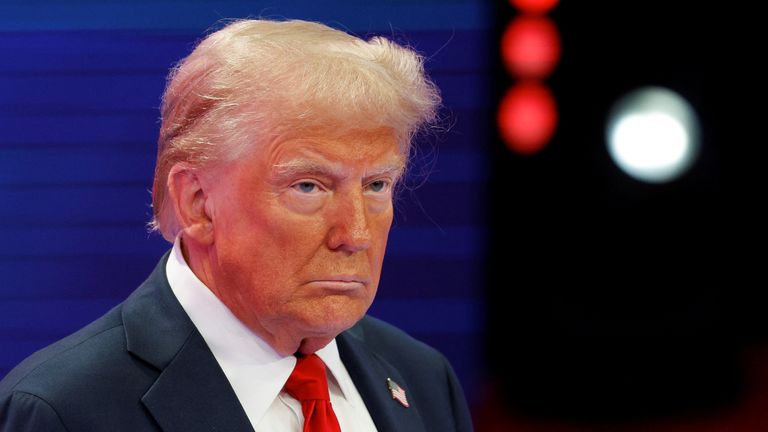In a stunning and unprecedented act of defiance, former President Donald J. Trump has publicly and unequivocally rejected a ruling handed down by the U.S. Supreme Court, igniting what legal scholars are already calling a full-scale constitutional crisis.
“You made your ruling. Now enforce it, because I’m not going to,” Trump said during a fiery address at a rally in Pensacola, Florida on Saturday evening. His words were in direct response to a Supreme Court decision handed down earlier this week that barred him from engaging in specific political activities deemed unconstitutional under the 14th Amendment, Section 3, due to his role in the January 6th Capitol riot.
The high court’s ruling—expected to be the final legal barrier to Trump’s return to the political stage—has now been effectively nullified by Trump’s refusal to comply. “We have reached the moment many feared but hoped would never come,” said constitutional law expert Professor Linda Marelli of Georgetown University. “A direct challenge to the authority of the Supreme Court by a former president is not just rare—it’s explosive.”
Trump’s rejection of the ruling has already sent shockwaves through the political and legal communities. Chief Justice John Roberts, in an emergency statement released late Saturday night, called the former president’s remarks “a direct assault on the constitutional order of the United States.” The court, he said, “speaks for the law—and no citizen, no matter how powerful, is above it.”
Meanwhile, the Department of Justice has convened an emergency meeting to evaluate potential enforcement mechanisms. “The executive branch does not have the luxury of ignoring lawful orders by the Supreme Court,” said one senior DOJ official, speaking on condition of anonymity. “If this defiance stands unchallenged, the entire balance of power collapses.”
Reaction on Capitol Hill was immediate and fiercely divided. Democrats called the move “sedition in slow motion,” while several top Republicans rallied behind Trump, arguing the Court had overstepped its bounds. “The American people—not nine unelected justices—should decide who leads this nation,” said Senator Josh Hawley (R-MO).
Outside the court of law, the political ramifications are seismic. Protesters have begun gathering outside federal buildings in major cities. Security has been heightened in Washington, D.C., as concerns mount over civil unrest and potential clashes between pro- and anti-Trump factions.
As the U.S. faces the most profound constitutional confrontation in decades, one thing is clear: the rule of law is under direct challenge—and the path forward is more uncertain than ever.
